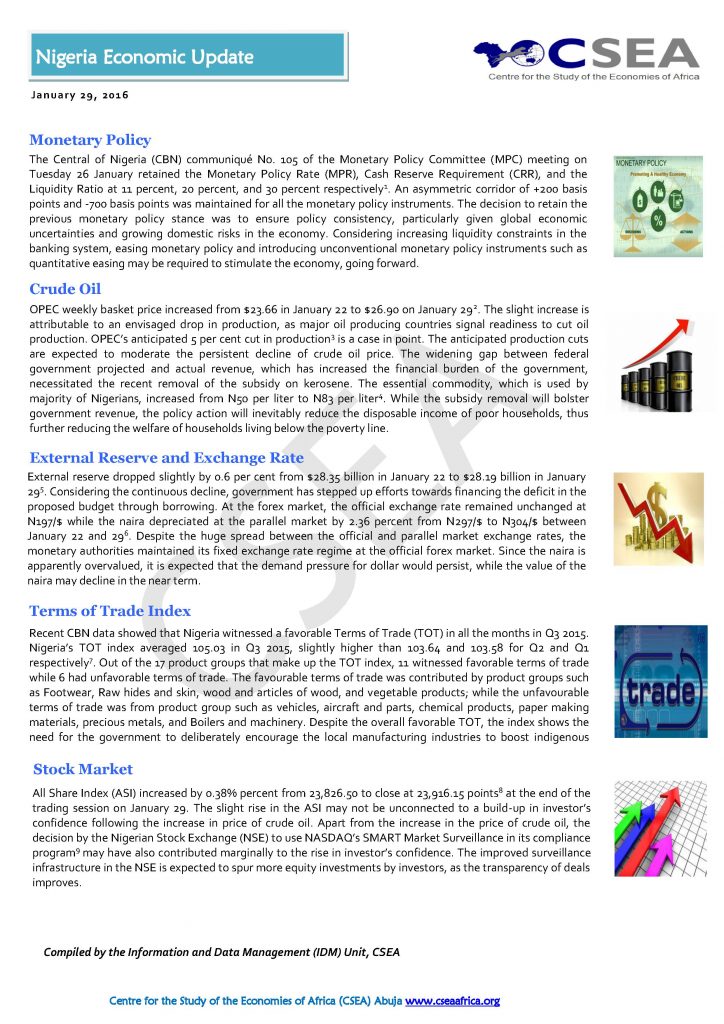Macroeconomic Report & Economic Updates

February 8, 2016
Nigeria Economic Update (Issue 7)
External
reserve dropped slightly by 0.6 per cent from $28.35 billion in January 22 to
$28.19 billion in January 295. Considering the continuous decline, government
has stepped up efforts towards financing the deficit in the proposed budget
through borrowing. At the forex market, the official exchange rate remained
unchanged at N197/$ while the naira depreciated at the parallel market by 2.36
percent from N297/$ to N304/$ between January 22 and 296. Despite
the huge spread between the official and parallel market exchange rates, the
monetary authorities maintained its fixed exchange rate regime at the official
forex market. It is expected that if the demand pressure for dollar persists,
the value of naira may decline in the near term.
